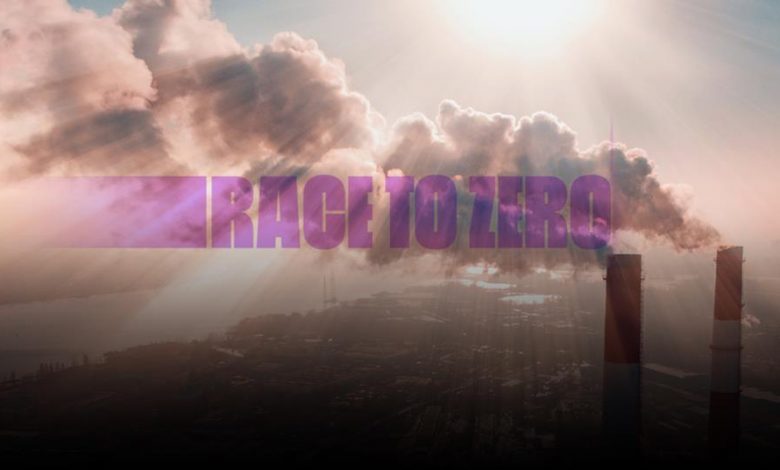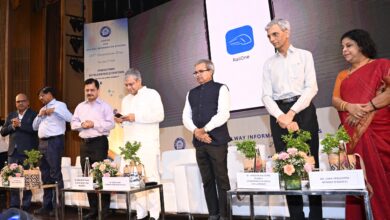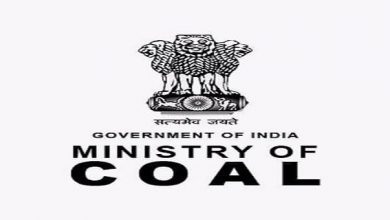Three Prominent States- Gujarat, Bihar And Ladakh Showcase Plans To Become Carbon Neutral
Show impetus to come through enormous scaling up of renewable energy

A discussion organised by The Climate Group at the sidelines of the annual New York Climate Week showcased progressive climate actions being undertaken by many Indian states as they strategically shift towards increased use of renewable energy. This comes at a time when UN calls for no further build of coal across the world and countries, companies, states and regions world over are committing to bringing down emissions to net zero by mid century. The plans of Indian states are well placed to achieve long term energy transition and net zero targets.
For instance, Gujarat is on the path to significantly reducing emissions as they choose to rely on RE alone to meet all future power needs. New analysis from GERMI shows that the share of coal power generation in the state will come down to 16pc by 2030, from the current 63pc as it aligns with the 450GW revised national renewable energy target. The state is also setting up the world’s largest grid-scale battery storage in the Kutch region and is one of India’s largest markets for electric two-wheelers.
The analysis shows that not only will Gujarat not need to build any further thermal coal assets, but it will also have to consider retirement of plants which are either old or polluting. Developing a retirement package for these coal plants will hold the key. This will make economic sense given that the cost of renewable energy is less than new coal power.
Akhilesh Magal, Head – Renewable Advisory Gujarat Energy Research and Management Institute (GERMI) says that “Gujarat has the potential to demonstratethat sub-national governments in India can take the lead in accelerating the energy transition in India. Our analysis shows that with the estimated 45 GW of installed renewable capacity by 2030, the state will be forced to run its older, inefficient thermal plants at reduced capacities. This makes the case for a planned early shutdown of these thermal assets. The energy transition is inevitable. All that is needed is a concrete plan to ensure that there are no sudden shocks to the system.”
On Net Zero Target, he said “We need to work toward Net Zero irrespective of whether there is a formal announcement or not. Electricity sector in India contributes to 40% of emissions. Renewable energy is already cheaper, hence its really an issue of integration.If we take the sector wise approach to decarbonise, then attaining net zero is something that we should easily hit by mid century”.
Similarly, the Union Territory of Ladakh is working towards an enormous 10 GW of renewable energy capacity with solar and wind power, and it is setting up a 50MWh battery storage capacity — India’s largest so far. Additionally, NITI Aayog has appointed TERI to facilitate an action plan and embed carbon neutrality in every department of the state as part of its Vision 2050 development plan.
Ravinder Kumar, Secretary Power Development Department, Ladakh said “ we have begun the exercise to convert Ladakh to carbon neutral territory in the next few years with every department working on five year exit plans. Most of the emissions come from the DG-sets. We have begun installing solar and geothermal projects to replace the polluting DG-sets. Electric and hydrogen vehicles are being given a push to reduce emissions from transport.” Further explaining on the state net neutrality target Mr Kumar said “ we aim to achieve carbon neutrality within the next five to 10 years as it is very important for Ladakh to be carbon neutral due to our ecological sensitivity”.
On developing the low carbon pathway for the State of Bihar, Dipak Kumar, Principal Secretary of Environment, Forest and Climate Change Department Bihar said “ the state has begun work on developing a low carbon pathway by 2040. Over the next two years we will study the level of our emissions and give policy suggestions to bring down emissions to a minimum by 2040.”
On Net Zero target, Mr Kumar said that “while there must be deadlines for net zero, it is important to bring environmental concerns into the mainstream across departments of policy to be able to plan comprehensively and increase our sink capacity and reduce emissions”.
The event was hosted ahead of COP26, the annual climate conference to be held in Glasgow from 1-14 Nov, and the findings come at a time when the recent IPCC report has warned of unprecedented climate impacts.




